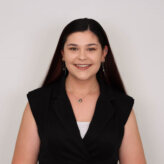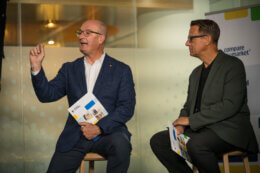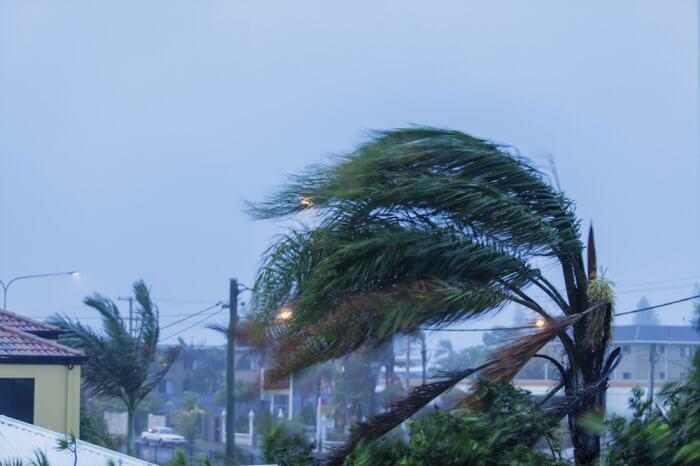
For many, grabbing a glass of wine or beer at the end of the day to wind down has become a habit, with perhaps a few more drinks on the tab as the end-of-year celebrations begin. Yet, recent Compare the Market data has found that this habit could be costing Millennial Aussies as much as $445 a month!
The survey found that the average Australian who drinks, spends $65.56 a week on alcohol, or $284.09 a month, while Millennials hit it out of the park, spending on average $102.91 a week on their favourite grog.
Gen Xers were the next big spenders, (though not as much as their Millennial counterparts), with $68.17 of their weekly budget going to a tall glass of their preferred alcohol. Baby Boomers, on the other hand, were the least likely to spend money on booze, with a modest average of $34.70 a week being spent.
| Generation | Cost of alcoholic drinks per week | Cost of alcoholic drinks per month | Cost of alcoholic drinks per year |
| Gen Z | $52.85 | $229.02 | $2,748.20 |
| Millennials | $102.91 | $445.94 | $5,351.32 |
| Gen X | $68.17 | $295.40 | $3,544.84 |
| Baby Boomers | $34.70 | $150.37 | $1,804.40 |
| Australian average | $65.56 | $284.09 | $3,409.12 |
As for the state that spends the most on booze? That’s none other than Queensland, with the average drinker spending $85.36 a week on alcoholic drinks, or around $370 per month. Drinkers in New South Wales are also seemingly splashing the cash on their drink of choice by paying around $75 a week.
| State | Cost of alcoholic drinks per week | Cost of alcoholic drinks per month | Cost of alcoholic drinks per year |
| QLD | $85.36 | $369.89 | $4,438.72 |
| NSW | $75.05 | $325.22 | $3,902.60 |
| WA | $58.74 | $254.54 | $3,054.48 |
| SA | $54.14 | $234.61 | $2,815.28 |
| VIC | $46.48 | $201.41 | $2,416.96 |
Speaking to the current financial pressure many households are facing across the country, Compare the Market’s spokesperson, Chris Ford, said that despite as many as 40% of people willing to cut spending on alcohol in June of this year, there are still savings to be had.
“Ahead of Dry July, we saw as many as two in five drinkers say that they would be willing to cut down on alcohol to save money, yet it seems that there is still a sizeable amount of the weekly budget going to drinks,” Mr Ford said. “Simply giving up the drinks for a month could save people almost $300 a month, which can be one or maybe two grocery shops in a month, or even a quarterly electricity bill all done and dusted.
“Besides going sober in January, there are a few other ways you can supercharge your savings at the start of the year, such as giving your energy bills a good review.
“It’s often an overlooked fact that after being with your electricity or gas retailer for a set period, you’re usually transitioned to a ‘standard rate’, which could be driving up your bills. This is why it’s so important to check what you’re paying for your energy usage and shop around for better deals, especially if it has been over a year since you’ve changed plans.
“And if you’re car insurance is coming up, be sure to compare and not auto-renew. We know the convenience of having your insurance sorted is appealing, but we’ve had customers who were able to save over $400 on their insurance policy just by shopping around.”
“Lastly, but not in the bit least, if you have a home loan, and you’ve got a 7 or 8 in front of it, consider refinancing. Again, there are not many people out there who would willingly sit down and do paperwork, but sorting through your home loan papers can be a gold mine of savings. We’ve had a customer come through our new home loan journey where she was able to refinance to a lower rate and was able to save over $600 on a monthly payment.”
“With the start of the new year nearly upon us, it’s the perfect time to get your finances ready so that you can kickstart your savings.”
*Compare the Market surveyed 1,002 Australians aged 18 and over in November 2023
** Home loan savings current as at 5/9/23, based on a variable rate home loan with monthly principal and interest repayments for a term of 28 years.
-ENDS-
For interviews and more information, please contact:
Noémi Hadnagy | m: 0433 377 252 | e: [email protected]
Compare the Market is a comparison service that takes the hard work out of shopping around. We make it Simples for Australians to quickly and easily compare and buy insurance, energy, and home loans products from a range of providers. Our easy-to-use comparison tool helps you look for a range of products that may suit your needs and benefit your back pocket.








